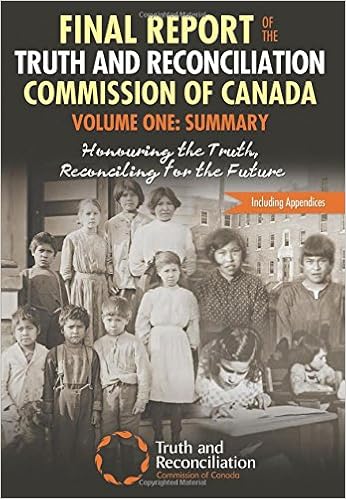
Recently Canadian Senator Murray Sinclair, who chaired the Indian Residential Schools Truth and Reconciliation Commission drew attention to an article by Dina Gilio-Whitaker, which in turn refers to a 1989 essay “White Privilege: Unpacking the Invisible Knapsack" by Peggy McIntosh. https://www.beaconbroadside.com/broadside/2018/11/unpacking-the-invisible-knapsack-of-settler-privilege.html
As the name of the essay states it is about the assumptions of privilege held by those who arrived from Europe and elsewhere to impose racist and often genocidal rule in the Americas. We hear more and more about "settler colonialism" in the ongoing conversation about the relationship between First Nations peoples and those who arrived, initially negotiated in supposed good faith, only to become colonizers.
I had an unsettling reminder of what we might call "settler theology" this past week. In my late mother's effects I found a copy of the United Church Observer from 1975 which celebrated the 50th anniversary of the denomination. In includes many historical articles including a 1940 piece by someone who had visited Native communities out West. The brief article is called Indian Missions: Do They Pay? The writer describes visiting a "half-breed" settlement where the residents live in abject poverty and run from him when he approaches. Presumably he's referring to a Metis community of some kind. Then he writes of a visit to a nearby Indian village where all is tidy and he is warmly greeted by residents who speak English. He concludes: "How do you account for the difference, when both people are practically of the same stock? Because for generations there has been a Protestant mission on the Indian reserve."
The unvarnished racism of this piece shocked me, although why should it, given the United Church's sorry history of cultural genocide and racism in the Residential Schools. It is obvious that the writer believes that Protestant Christianity (not Roman Catholic!) as well as the introduction of the English language have civilized these heathen people.
I was also struck by the decision of the Observer to republish this piece under the heading of Reaching Out in Canada, without framing it with any reflection on our colonial sins. United Church Residential Schools had existed until 1969, only a few years before this commemorative issue.
For me this was an important reminder of why there has been a series of United Church apologies to First Nations and why we continue the important work of reconciliation. We are addressing our "settler theology" but are still delving into that knapsack.
Thoughts?

No comments:
Post a Comment